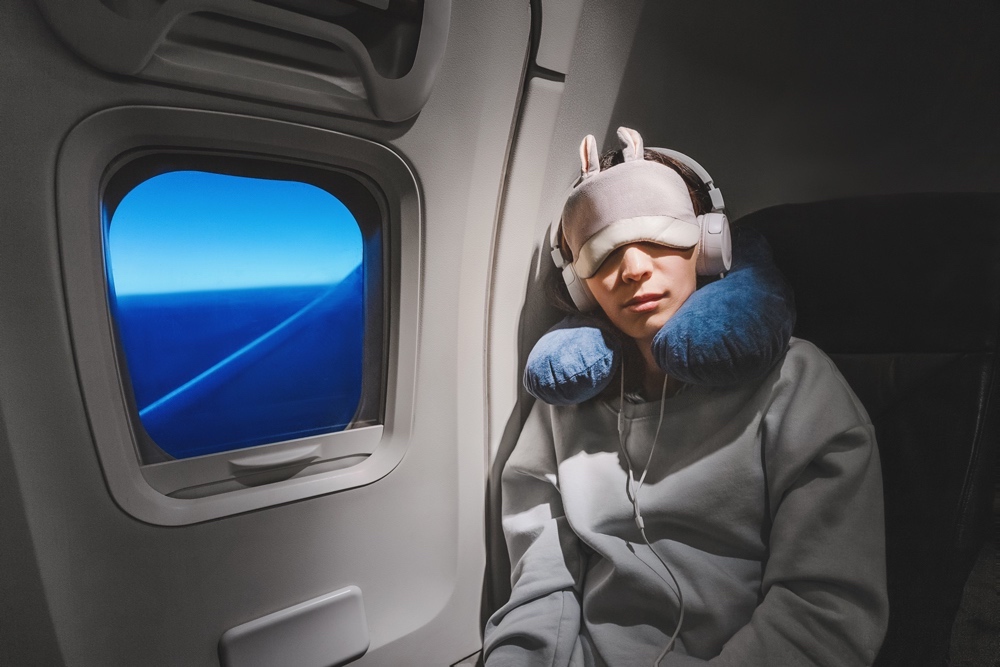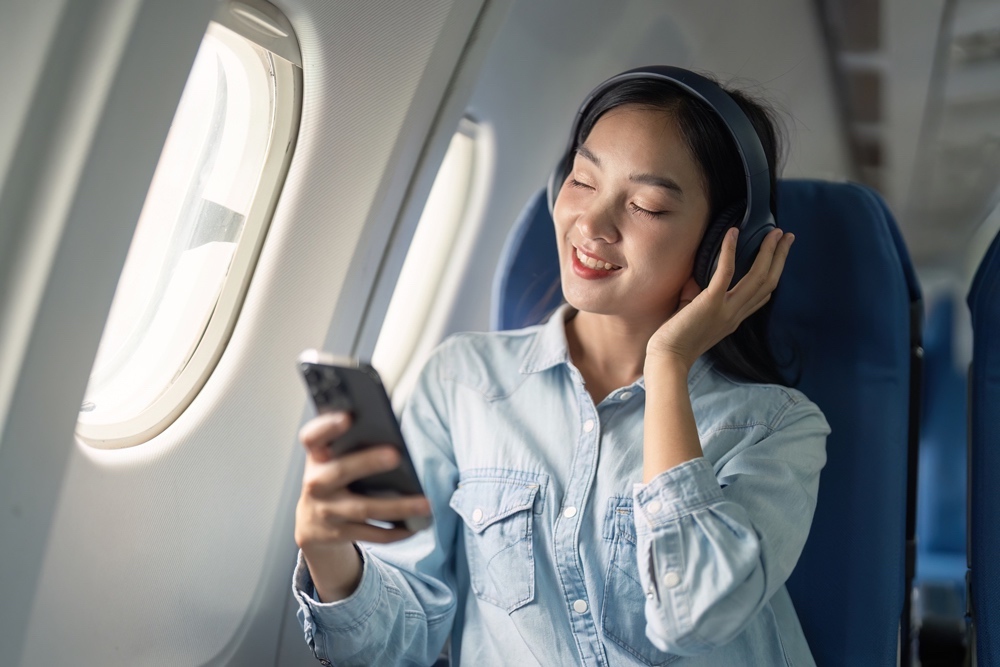Just because you’re jet-setting doesn’t mean you have to sacrifice your shuteye.
There are few feelings in the world better than waking up after a quality night’s sleep. We all know that sensation of getting out of bed with our minds rested and peaceful, perhaps still a little lost in dream world. Sleep plays a crucial role in our physical and mental health, helping to recharge our bodies and reducing anxiety. But our shuteye all too often suffers when we’re on the road or the plane, even though there’s no need to compromise on it. Here are five tips to help you maximise your sleep while you’re travelling.
(Some of these tips are mentioned in our Here and Now series. Check it out to learn more.)
Avoid alcohol and caffeine on board and before boarding
Alcohol is a nervous system depressant that induces relaxation, but it can also disrupt the sleep cycle and decrease sleep quality. Caffeine, on the other hand, blocks the adenosine receptor, which is in charge of helping you feel sleepy. If you’re looking for a little pre-flight pick-me-up, go for decaf coffee or herbal tea instead.

Block out noise and light
Ensure your environment is quiet, dark, and at a relaxing temperature so that it is easier for you to doze off. We’ve got the temperature part covered for our passengers, but if you’re sensitive to light, bring an eye mask along (or ask our flight crew for one) — it can help you feel that extra comfort you do at home. Limit your screen time before trying to fall asleep and take advantage of anti-blue light settings on your device. Blue light tricks the brain into thinking it’s daytime. When that happens, the body stops releasing a sleep hormone called melatonin.
Additionally, wear earplugs or headphones to block out the sounds that other passengers make on board.
Dress for comfort
No one wants to be stuck in an aeroplane seat wearing tight and ill-fitting clothing, especially if they’re on a long flight. To optimise sleep comfort, wear loose, soft clothing, such as a cotton t-shirt and sweatpants. Also, invest in a good neck pillow so that your head rests more adequately.
Get into the right mindset before boarding
Give yourself time to relax and wind down from any pre-flight stress or excitement. This will help to ensure your body is ready to rest once on board.

Listen to relaxing music
Music has been shown to decrease levels of the stress hormone cortisol and aid the release of dopamine, which can make you feel relaxed and at ease. This, in turn, reduces the time it takes to fall asleep and improves sleep quality. Try listening to music that is slower, around 60 to 80 beats per minute. On KrisWorld, we’ve got a collection of calming, meditative music that will lull you into deep slumber.
Watch Here and Now to learn more about improving sleep during your travels.